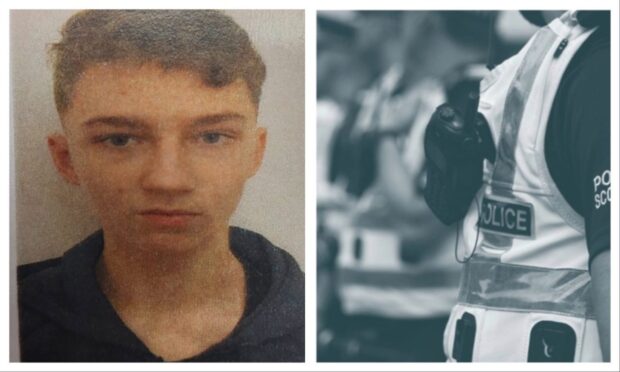Police in Fife carried out 231 missing persons investigations in just seven weeks, half of them involving children.
Officers were called out 13o times between April 1 and May 22 to search for vulnerable under-16s, who made up 56% of the total missing person reports in the region.
In April alone 79 children were reported missing, placing significant demand on resources.
Police said many of those who go missing are in care and disappear more than once, putting them at risk of child sexual exploitation, criminal behaviour and harm to their long-term wellbeing.
A multi-agency group was launched six months ago aimed at reducing the number of people reported missing across the kingdom.
The team, involving police, Fife Council’s education and social work staff, NHS Fife, private care establishments and the voluntary sector, provides support to missing youngsters and their families in a bid to prevent future episodes.
Ahead of International Missing Children’s Day on Friday, members of the Missing Person Working Group said the approach appeared to be working.
This month alone has seen a 12% reduction in missing person reports compared to May last year, although it has yet to be established if the figure is a one off or part of a longer term trend.
Detective Chief Inspector John Anderson said: “Working together we recognise the importance of a joint approach to missing people in order to minimise the risk to these vulnerable groups.
“More importantly, however, it’s about encouraging people not to go missing in the first instance by highlighting the associated risks and signposting them to all the relevant support and help they may require.
“Many of the children who go missing are amongst the most vulnerable and the reasons for them going missing are varied and complex.
“The ongoing work by our agencies is intended to identify ways in which we can work together to protect these children, identify preventative measures and ensure relevant support is in place.”
Carrie Lindsay, executive director with Fife Council’s children’s services, said the team was trying to build the resilience of children for whom fairly normal situations could tip them over the edge.
“When we have repeat offenders we look to see what the stressors might have been and what could be put in place in the future to help them deal with that,” she said.
One success involves a 16-year-old boy who went missing 21 times before the group intervened and changed his care plan and accommodation.
He has not been reported missing since and the risks he was exposing himself to have significantly reduced.










